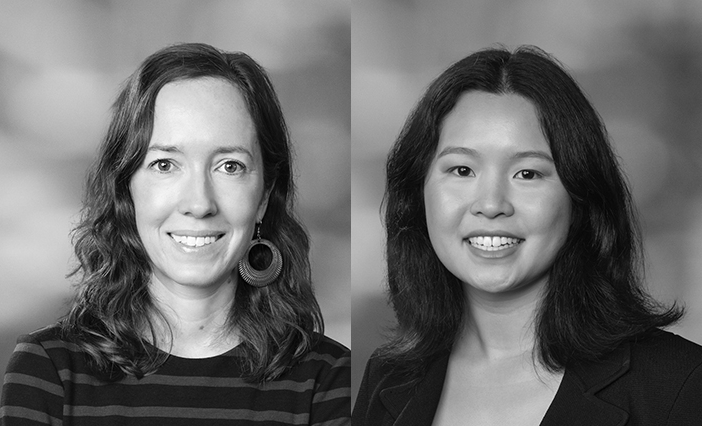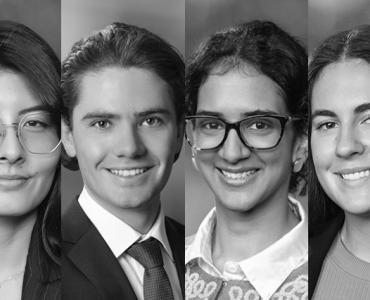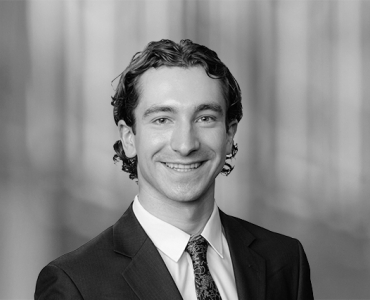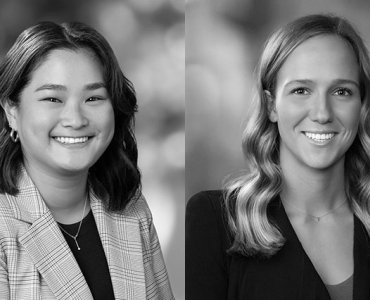
September 2024: Lee Carroll is a Partner in the Firm's Global International Arbitration practice, based in Melbourne, and former Graduate Program supervisor for Lyn Nguyen's third-seat. Lyn has since settled in Lee's team and in this article, they discuss how the supervisor-graduate relationship works and how future graduates can make the most of the time they spend working with senior lawyers.
Describe how a graduate and supervisor work together
Lyn Nguyen: A graduate and supervisor work together on work matters but also on the graduate's development and learning. For example, during the Graduate Program, a mid-seat and end-of-seat feedback session occurs where the graduate and supervisor can discuss the graduate's experience in the team and feedback on their performance.
Lee Carroll: The Firm's flat structure means there are plenty of opportunities for a graduate and supervisor to work together. This structure provides graduates with a wonderful learning environment as an increased exposure to senior lawyers can only accelerate one's development.
What's the role of a supervisor, aside from assigning work?
LC: A supervisor is someone you can learn from. Every partner was once a junior and has experienced the trajectory from law graduate. A supervisor can also be a mentor and someone with whom a graduate can discuss career progression and professional ambitions. In addition to that professional perspective, a Partner (male or female) has the opportunity to model the balance between work and life outside of work, and that is something I strive to do well.
LN: I saw my supervisors as role models. Alongside assigning work, a supervisor will also offer mentorship and guidance to graduates. For example, I always tried to catch up with my supervisor regularly to discuss my career goals and reflect on my work and experiences. I also caught up with my supervisor to learn more about the matters that I am working on, and to understand and learn about the reasons behind the decisions they make on those matters.
Lyn, over the Graduate Program, a graduate will work with three different supervisors, along with many other lawyers, of course. How do you make the most of the time you spend with different supervisors?
LN: Make an effort to ask questions and take interest in your supervisor's practice and matters (even the ones you are not working on). Schedule catch-ups to discuss your progress and learning. Partners are busy people, so it is important to be considerate and thoughtful of their time, but also proactive and open about your own learning and development.
Every supervisor will be different—from their practice area to their individual working styles or preferences. How can a grad hit the ground running in a new seat?
LN: Discuss what it is like working in a specific team or with a particular supervisor with the graduate whose shoes you will be stepping into, as they will have the most recent experience with your supervisor's styles and preferences. I would also directly reach out to the supervisor prior to starting in the team to get to know them and have a conversation with them about what they expect and how best to prepare for the rotation.
Finally, what's your advice for future grads wondering about how to make the most of this important relationship?
LC: My expectations are likely to be different depending on where graduates are in their program. For example, a first-seat graduate is probably getting used to full-time work for the first time. That in itself is a personal adjustment. But my strong advice to all juniors is the same: be visible, be enthusiastic, take every opportunity to learn and gain new experiences and a variety of work. And also make sure you do the small things well too.
LN: Get to know your supervisor and take an interest in who they are and what they do. And be open and honest with your supervisor about what you hope to achieve and learn – as well as any difficulties you may face. They are there to support and guide you and will be in the best position to do so if they are aware of your experience.





